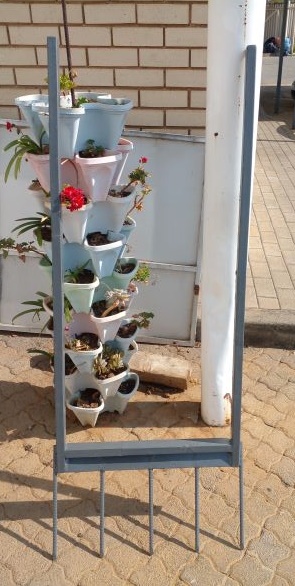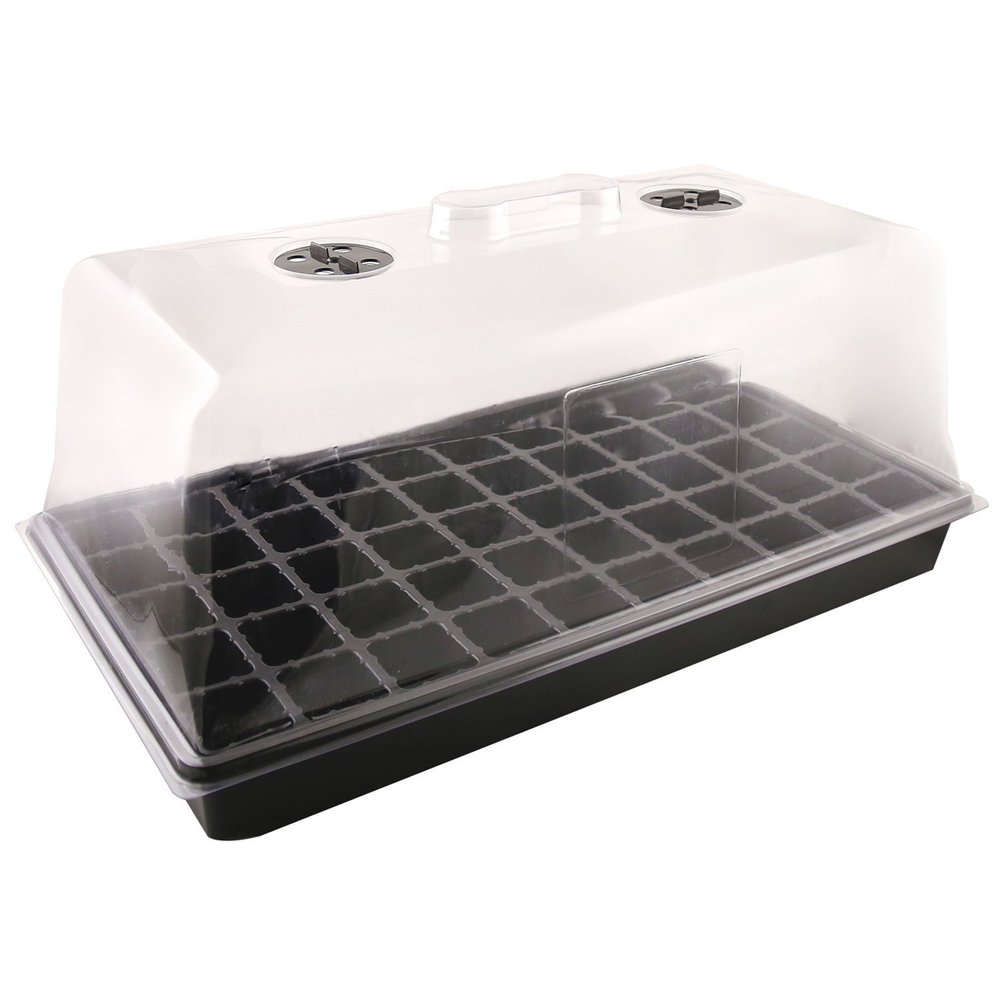A broadfork is an agricultural tool used to aerate the soil. Broadforks are an alternative to tilling the soil since they don’t break up the soil structure and are fairly easy to use. Once you get in the hang of it, working with a broadfork is super fun – like an adult jungle gym.
Have you ever hear the expression that the correct tool makes any job easy? Well, the broadfork is the correct tool for anyone trying to regenerate their soil. This is why you may have heard of the trusty broadfork be mentioned in articles about regenerative agriculture.
If you’re not sure what a broadfork is or how to use it, make sure you keep reading! I’ll share why I love this handy tool so much, the benefits for your soil, and my favorite way to use a broadfork.
What is a Broadfork
A broadfork is an agricultural tool that is made up of two wooden poles attached to either side of a horizontal metal fork. It comes from the French agricultural tool, grelinette, and was introduced to the United States in the 1990s by Eliot Coleman.
Broadforks consist of metal teeth or sheaths that can be up to 16 inches long. The metal teeth are welded to a flat metal bar that runs along the bottom. From either edge up the metal bar, two wooden poles come up and serve as handles. And that’s it! Broadfork design doesn’t get more complicated than that.
The broadfork is my go-to suggestion for gardening tools. It is a simple yet extremely effective tool, which went into disuse when motor-powered rototillers became available. Renewed interest in soil health has increased the popularity of broadforks in recent years.
Broadforks might be labor intensive when compared to machine operated solutions, but will make your life easier in the long-term. This simple hand-operated tool is capable of loosening and aerating difficult soils through a rocking motion that doesn’t invert soil layers. By not inverting soil layers, you preserve the soil life which will make future garden maintenance easier.
Benefits of Using a Broadfork
The main benefit of using a broadfork is that it doesn’t invert the soil layers and therefore preserves the soil structure. This simple act keeps the microorganisms, and other soil life, in their respective layers and has positive implications for drainage, aeration, and quality.
Soil is made up of layers. Each one of these layers hosts different types of microorganisms, bacteria, and insects. The most important soil layer is the topsoil, which should always remain as topsoil without being turned over.
When you invert the soil it affects these layers so the soil food web can’t function properly. When the soil structure isn’t intact, its capacity to hold water and make nutrients available is compromised.
Working soil with a broadfork provides channels for air and water to circulate and roots to grow. The blades go down up to 16 inches, which allows for deeper penetration of the soil than with a tiller. This helps your plants send out deep roots that can access water more easily.
Weed prevention
Because broadforks don’t turn the soil over, it also helps keep weed seeds in the dark. When you till and turn the soil over, you bring up dormant weed seeds that had made their way into the lower soil levels.
Once weed seeds are on the surface they germinate and grow – meaning you then have to till again, manually pull them, or use other weeding strategies. Broadforks on the other hand, don’t turn the soil and don’t bring up the weed seeds. In the dark, these seeds won’t germinate and you prevent them from growing by simply letting them be dormant.
Another practical benefit to more serious gardeners and farmers is that you can start planting regardless of rain. If you’re using a tiller, it’s strongly recommended to work dry soil. Tilling wet soil enables compaction and speeds up soil degradation. With a broadfork, you can work through wet soil with no problem, so you don’t have to delay planting because it’s been raining.
For gardeners, using a broadfork is strongly preferred to manually working the soil with a hoe and much cheaper than buying a motor-operated rototiller. Some people even find the repetitive swinging motion to be quite fun.
When Should I use a Broadfork Rather than a Tiller?
Use a broadfork to maintain your garden beds between seasons and to restore very degraded soils which shouldn’t be tilled.
If you can manage the manual work of using a broadfork then always choose it over a tiller. The only exception to this would be to start a bed that has never been worked before. After this first tilling, choose a strategy of using cover crops and a broadfork to prepare your soil for planting.
The above advice is most appropriate for annual beds that have a periodic rotation of crops. In perennial beds, you don’t have to work the soil because the root systems do that for you.
Now let’s say that you are trying to cultivate a piece of land that is very degraded. I’m talking hardpan surface, poor soil structure, and few microorganisms. Using a tiller on this type of soil will only make things worse, even if you are putting in compost. In this case, using a broadfork will be well worth the intense physical labor.
If you do decide to till, make sure to check out our article on when to till your garden.
How do I Use a Broadfork
To use a broadfork, the user should push the blades into the soil, then step back and pull back on the handles. Repeat the rocking motion a couple of times by pushing the handles away from you and then towards you. This will cause the blades to work through the soil. Remove the blades from the soil by pulling up and repeat with every step back that you take.
When using a broadfork, I like to put the blades into the ground and jump onto the top of the metal bar so that I can use my full body weight to dig it in. I then lean backward and step back, causing the broadfork to move back and work through the soil. Once you get into the flow of it, the hopping and swaying motion starts to feel like a dance and is quite fun!



